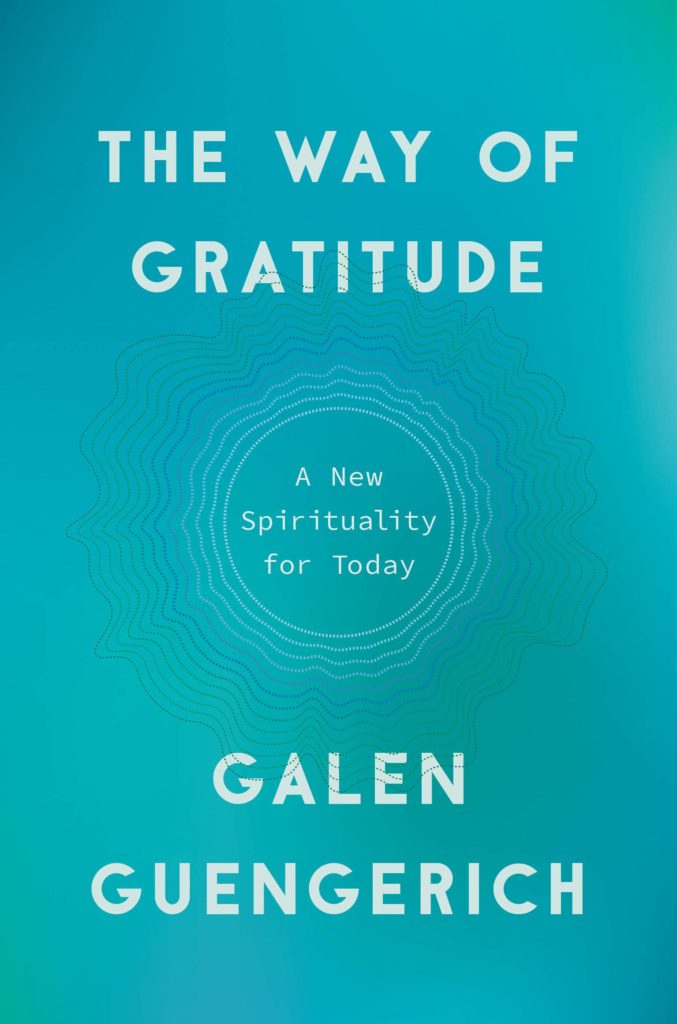Thanksgiving is an appropriate moment for thinking a bit about gratitude. Galen Guengerich, the senior minister of All Souls Unitarian Church in New York City, argues that pretty much every moment is appropriate for thinking about gratitude.
I crossed paths with Galen in seminary, where we lived in the same graduate student apartment complex and shared many meals and an interest in somewhat temperamental European sports cars.
Galen’s journey from there to All Souls in New York is an interesting one, since he started out as a conservative Mennonite. He recently published a very nice book, The Way of Gratitude, that tells some of that story and outlines his spiritual worldview, which emphasizes the centrality of gratitude. Here’s a quick version of how he conceptualizes gratitude:
Gratitude is the practice of radical openness to whatever comes our way, whether for good or for ill. It’s a way of living that understands the meaning of our lives in terms of our relationships to the people and world around us. The practice of gratitude enables us not only to embrace the good experiences in our lives, but also to endure the difficult experiences and seek to transform them. It points the way from what is present to what is possible.
GALEN GUENGERICH, THE WAY OF GRATITUDE, (2020) 66-67.
Putting gratitude at the center of spirituality connects to my interests in its implications for our sense of the purpose of life.
If one were going to tease out a central life purpose in the book, I think it would be the pursuit of joy. Gratitude and joy are intimately related in Galen’s approach. The practice of gratitude is a path to joy–even in difficult times, even in a post-9/11 world well-described by Polish poet Adam Zagajewski as “mutilated.”
While Galen does not explicitly underline the argument I want to advance that love is the purpose of life, he dances around the edges of it, both in his emphasis on the centrality of relationships at the core of life, and in the personal anecdotes that greatly enrich the book.
[O]ur gratitude goal should be to increase the quality of our relationships. As we become more fully and deeply engaged with the people around us, we add more value to our own lives, as well as to theirs.
GALEN GUENGERICH, THE WAY OF GRATITUDE, (2020) 94.
This engagement with the world in a spirit of gratitude requires reciprocity–the desire to give back and support the people, social structures, and even the global ecological conditions that have made possible and enriched our lives in ways for which we are grateful.
If we are fortunate, the people and world around us have given us what we need to develop physical and emotional maturity. We become spiritually mature as we realize what we owe in return. Whenever our vast array of relationships includes experiences of pain or even perversity, life invites us to be grateful for what we have been given and to be agents of healing and hope. When these relationships are beneficial and beautiful we find ourselves experiencing what Carl Dennis called “the happiness that can’t be earned.” The spiritual term for this kind of happiness, in my view, is joy.
GALEN GUENGERICH, THE WAY OF GRATITUDE, (2020) 67.
Galen cites French philosopher, linguist, and feminist Luce Irigaray on the nature and language of a love that requires treating the other as subject rather than object. This point is the key to my argument that women’s equality is a necessary condition for authentic partnership love between adults.

